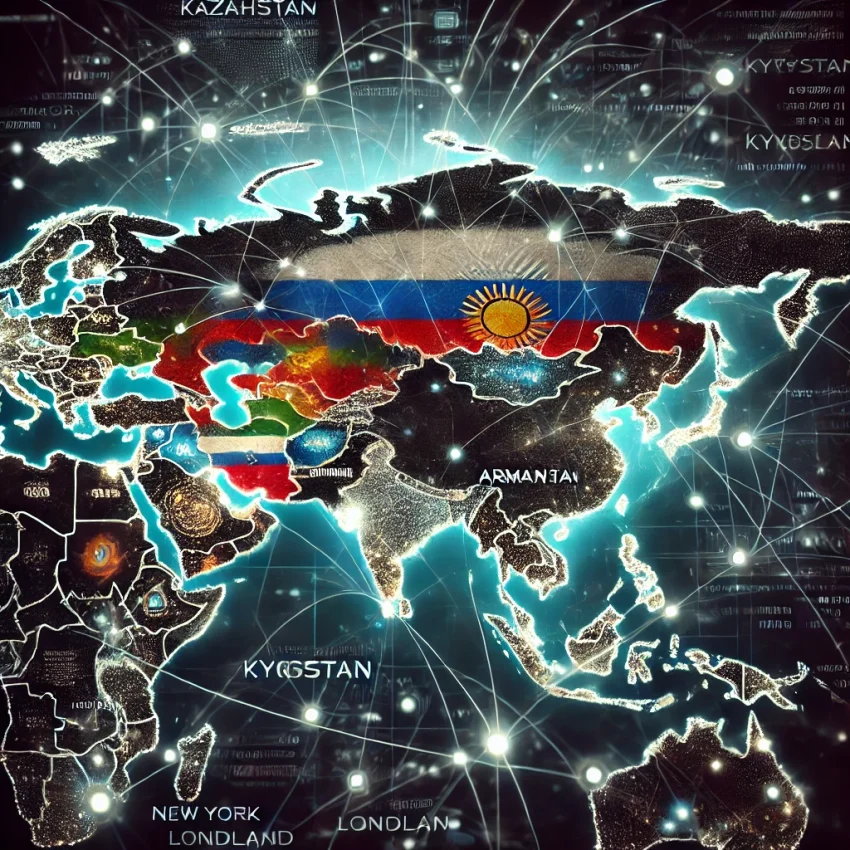The imposition of international sanctions, particularly by Western nations, has significantly constrained Russia’s access to global financial systems such as SWIFT and has led to the isolation of many Russian banks. However, Russia has developed alternative strategies to mitigate these sanctions, leveraging its alliances with certain countries that still maintain access to critical financial networks. This article explores how Russia might use its relationships with Kazakhstan, Armenia, Kyrgyzstan, and Switzerland to continue engaging in international trade and financial transactions despite the sanctions.
The Role of SPFS, SWIFT/BIC, and IBAN in Facilitating Transactions
SPFS (System for Transfer of Financial Messages), Russia’s alternative to SWIFT, was developed to ensure the continuity of financial transactions, particularly with countries that are sympathetic to or aligned with Russia’s geopolitical stance. SPFS is primarily used within Russia and by a select group of international partners. However, its reach is limited compared to SWIFT, which is the predominant system for international financial messaging.
SWIFT/BIC remains the most widely used network globally for secure and standardized financial transactions. Despite sanctions, some Russian banks still have limited access to SWIFT, allowing them to engage in transactions where permitted. This is where countries like Kazakhstan, Armenia, Kyrgyzstan, and Switzerland come into play.
IBAN (International Bank Account Number) is crucial for ensuring the accuracy and efficiency of cross-border transactions, especially in Europe and other regions that have adopted the system. Countries that facilitate transactions using IBAN can effectively manage payments between Russia and global markets, including Western countries, by ensuring that funds are routed correctly and securely.
Kazakhstan, Armenia, Kyrgyzstan, and Switzerland: Key Players in Russia’s Financial Strategy
These four countries hold a unique position in the global financial system, maintaining full access to SPFS, SWIFT, and IBAN. This access allows them to act as intermediaries in financial transactions involving Russia and Belarus. Here’s how each country plays a part:
- Kazakhstan: As a member of the Eurasian Economic Union (EAEU) and a close ally of Russia, Kazakhstan has integrated SPFS into its financial systems. It also remains fully connected to SWIFT and uses IBAN for international payments. Kazakhstan’s strategic location and financial infrastructure enable it to facilitate transactions between Russia and other global markets, including those in the West.
- Armenia: Armenia, another EAEU member, has similarly integrated SPFS while retaining full access to SWIFT and IBAN. Armenia’s financial institutions can serve as conduits for Russian transactions, particularly in the context of remittances and trade payments.
- Kyrgyzstan: With strong economic ties to Russia, Kyrgyzstan uses SPFS to handle transactions within the Russian sphere. Its continued access to SWIFT and IBAN allows it to facilitate payments that might otherwise be blocked due to sanctions, making it a crucial player in Russia’s financial maneuvering.
- Switzerland: Although traditionally neutral, Switzerland’s financial institutions are deeply embedded in the global financial system, including full access to SWIFT and IBAN. Switzerland’s connection to SPFS, though less publicized, allows it to handle transactions with Russian entities that are sanctioned elsewhere. This makes Switzerland a potential gateway for Russian financial activities in the West.
Implications and Risks
The ability of these countries to facilitate transactions for Russia and Belarus presents a significant challenge to the effectiveness of international sanctions. By leveraging their access to SPFS, SWIFT, and IBAN, these nations can help Russia continue to engage in global trade and financial activities, potentially undermining the intended impact of sanctions. However, this also exposes these intermediary countries to risks, including secondary sanctions from Western nations and reputational damage on the global stage.
Conclusion
As Russia seeks to navigate the financial restrictions imposed by Western sanctions, its relationships with Kazakhstan, Armenia, Kyrgyzstan, and Switzerland will be crucial. These countries, with their full access to SPFS, SWIFT/BIC, and IBAN, provide Russia with a lifeline to the global financial system. The international community will need to closely monitor these relationships and the financial flows they facilitate to assess the true impact of sanctions and consider potential responses to mitigate this circumvention.
Andrea Bodei
EUCIF
The European Cyber Intelligence Foundation is a European non-profit think tank specializing in intelligence and cybersecurity, offering consultancy services to government entities

